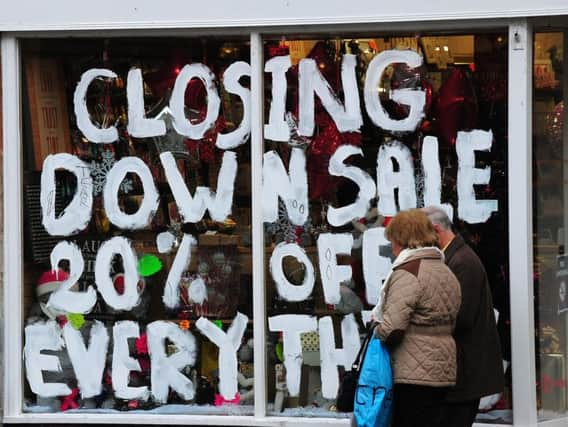Scottish corporate failures dip in as raised risk becomes ‘new normal’


Official bankruptcy statistics for the first quarter of the 2019-20 financial year revealed that the number of Scottish-registered companies becoming insolvent (including, for example, entering receivership) decreased to 239.
This marks a fall of 15 per cent compared with the previous quarter and a 2 per cent drop from 245 business failures in the opening quarter of 2018-19.
Advertisement
Hide AdAdvertisement
Hide AdHowever, experts cautioned that the quarterly improvement alone would not be enough to reverse the long-term trend of rising corporate insolvencies in Scotland since the beginning of 2017.
The figures from Accountant in Bankruptcy also found that there were 137 members’ voluntary liquidations, down from 141 a year earlier.
The corporate results contrast with a rising number of personal insolvencies, which increased for a fourth consecutive year.
Eileen Blackburn of Scottish insolvency and restructuring trade body R3 said businesses braced for Brexit may have been caught out by the decision to postpone until October. She said: “It’s fair to say that economic sentiment in Scotland is mixed.
“Many companies stocked up in the first quarter of 2019 on raw materials and components, in preparation for potential disruption to normal delivery flows via EU countries in the case of a no-deal Brexit, and may have found after 29 March that they were left with a pile of stock in warehouses, with no immediate buyers.”
She also said levels of elevated insolvency risk for Scottish businesses remained static, adding that “a raised risk level may be the ‘new normal’ for Scottish businesspeople”.
Blackburn also cited the recent increase in “real wages” – wage increases above the level of inflation – which will have given Scottish consumers’ personal finances a boost but has not yet fed through to increased spending in shops.
The figures were published the same day as a separate report that found Scotland to be the UK region with the highest rate of business closures, with a yearly average of 16 firms closed per 100,000 people.
Advertisement
Hide AdAdvertisement
Hide AdThe study by self-storage specialist Safestore cited a lack of adequate business models, issues with cashflow and finance, and unsustainable levels of competition as the top reasons for business failures.
Wales recorded the lowest deficit, Safestore added.